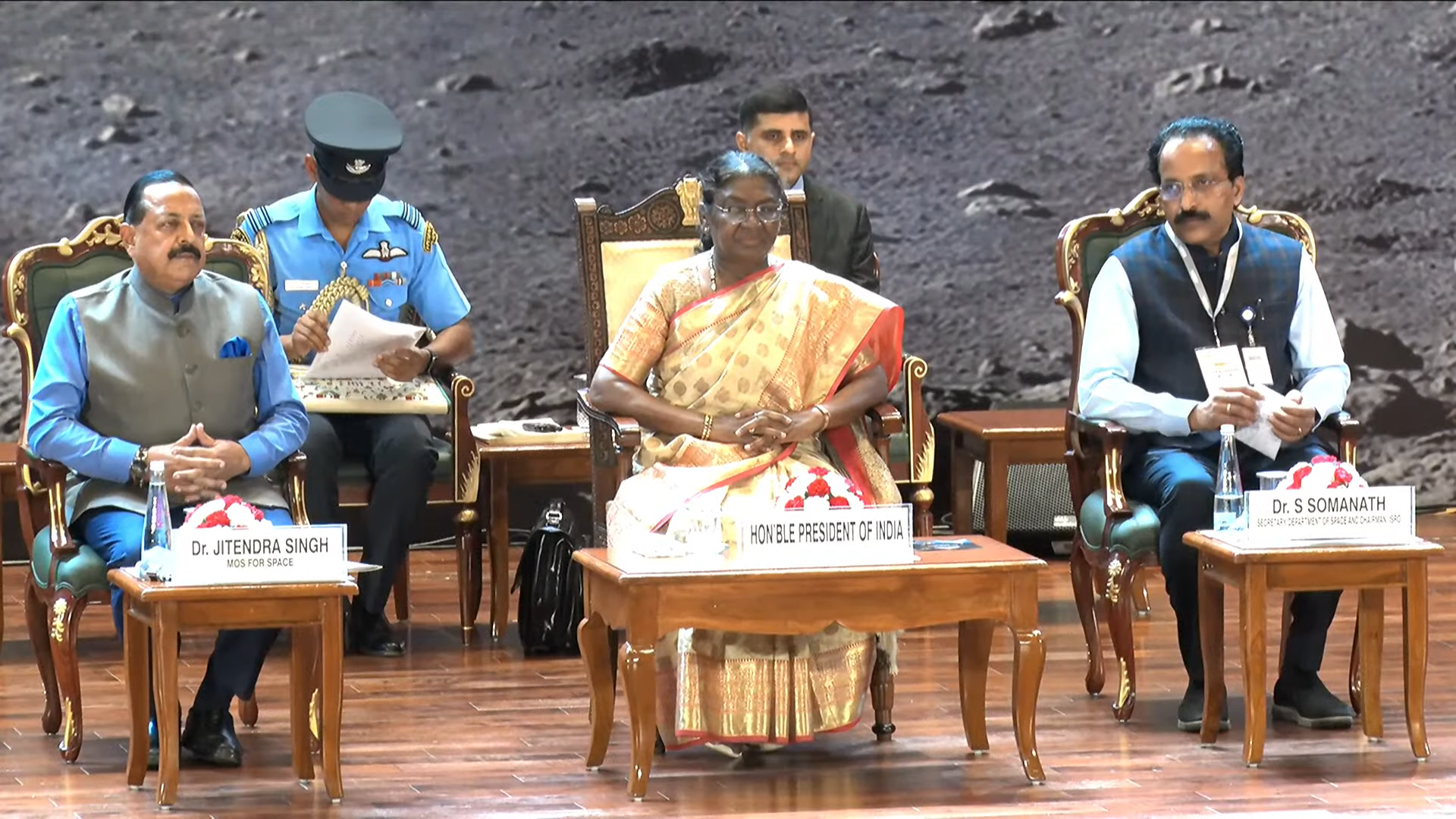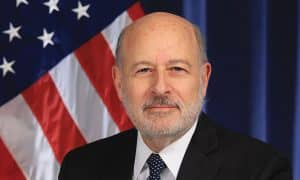India celebrated its inaugural National Space Day on the 23rd of August, commemorating the historic Chandrayaan-3 mission marking the country’s successful landing on the lunar South Pole, a first for any nation at an event in New Delhi’s Bharat Mandapam.
The inaugural National Space Day was a grand affair graced by the presence of the President of India, Draupadi Murmu, along with the ISRO Chairman, Dr. S Somanath, and the Minister of State for Space, Dr. Jitendra Singh.
India’s Space Vision for the Future
In his welcome address, Dr S Somanath, the ISRO Chairman, emphasized the significance of the Chandrayaan-3 mission and the impact it has had on India’s space program. He expressed his gratitude to the Prime Minister for his unwavering support and vision, which has been instrumental in propelling ISRO to new heights.
He said, “It was on August 23, 2023, that Chandrayaan-3 made history by successfully landing on the Moon, a feat that has forever etched India’s name in the annals of space exploration. At ISRO, we never anticipated the profound impact this achievement would have. It was during a visit by our Honourable Prime Minister to the control centre that the decision was made to commemorate August 23 as National Space Day and to name the Chandrayaan-3 landing site ‘Shiva Shakti Point.”
Dr Somanath also highlighted the importance of collaboration and international cooperation in space exploration and emphasized India’s commitment to playing a leading role in this field. He said, “Today, the nation celebrates this inaugural National Space Day with fervour and enthusiasm and we hope that this First National Space Day will be a day of inspiration, interaction, and collaboration. Let us celebrate our achievements, discuss the challenges ahead, and envision a future where India plays a leading role in space exploration.”
Chandrayaan-3, a Monumental Success
Dr Jitendra Singh, the Minister of State for Space, delivered a powerful speech that resonated with the audience. He highlighted the journey of ISRO, from its humble beginnings to its current position as a global leader.
“Today, as we commemorate National Space Day, we reflect on a journey that began just 55 years ago. ISRO, established in 1969, the same year that the first human landed on the surface of the Moon, has achieved remarkable milestones in a relatively short time. From our humble beginnings, we have now become the first nation to land on the Moon’s South Pole.”, he said.
“When we observe National Space Day, it’s also a day of introspection, reflection, and planning roadmaps for the future. We ponder on how we managed to cover this long journey in a short time and where we go from here.”, he added.
He praised the dedication and hard work of the ISRO scientists and engineers, who have made India’s space program a success.
He commended saying, “This achievement is a testament to the dedication, innovation, and perseverance of the ISRO team. However, it also highlights the crucial role of enabling policies and political leadership. Prime Minister Modi’s visionary approach has liberated ISRO from constraints, allowing us to reach new heights.”
Dr. Singh also emphasized the importance of space technology in addressing various societal challenges and its potential to improve the lives of millions of people as well as how it has contributed to a rise in space startups.
He said, “In the last three years, there’s been a quantum leap. We had just one space start-up three years ago; today, we have almost 300. India’s space economy will grow five times in the next ten years. We are currently at $8 billion and hope to reach $44 billion in the next decade. It is now contributing to various sectors, including agriculture, disaster management, and healthcare. Our expertise in space technology has positioned India as a global leader in this field.”
Bharatiya Antariksha Station, Space Debris and more?
The Minister also commented on the Indian Orbital Station, officially called the Bharatiya Antariksha Station (BAS), which is a planned modular space station to be constructed by India and operated by ISRO.
He said, “Our space station will be operational by 2035. And by 2040, we aim to have an Indian landing on the Moon’s surface. In a few months, one of the four astronauts will accompany counterparts to the International Space Station. Wing Commander Shukla, now promoted to Group Captain, has already been identified for this mission.”
Space technology today has entered every Indian household, adding value through artificial intelligence, machine learning, and quantum technology.
The minister emphasized this by saying, “India has demonstrated its space capabilities in all three verticals: space transportation, ground stations, and platforms. Beyond Earth and the deep sea, we are now reaching the next level—clearing space debris. We’ve set up one of the latest technologies in Bengaluru to detect and clear debris. Soon, we will also begin retrieving decommissioned satellites. By 2047, the space sector will be a key factor in India’s growth story as a developed nation.”
The future of India’s space program is filled with ambitious plans for future missions, including human spaceflight, lunar exploration and space station development.









